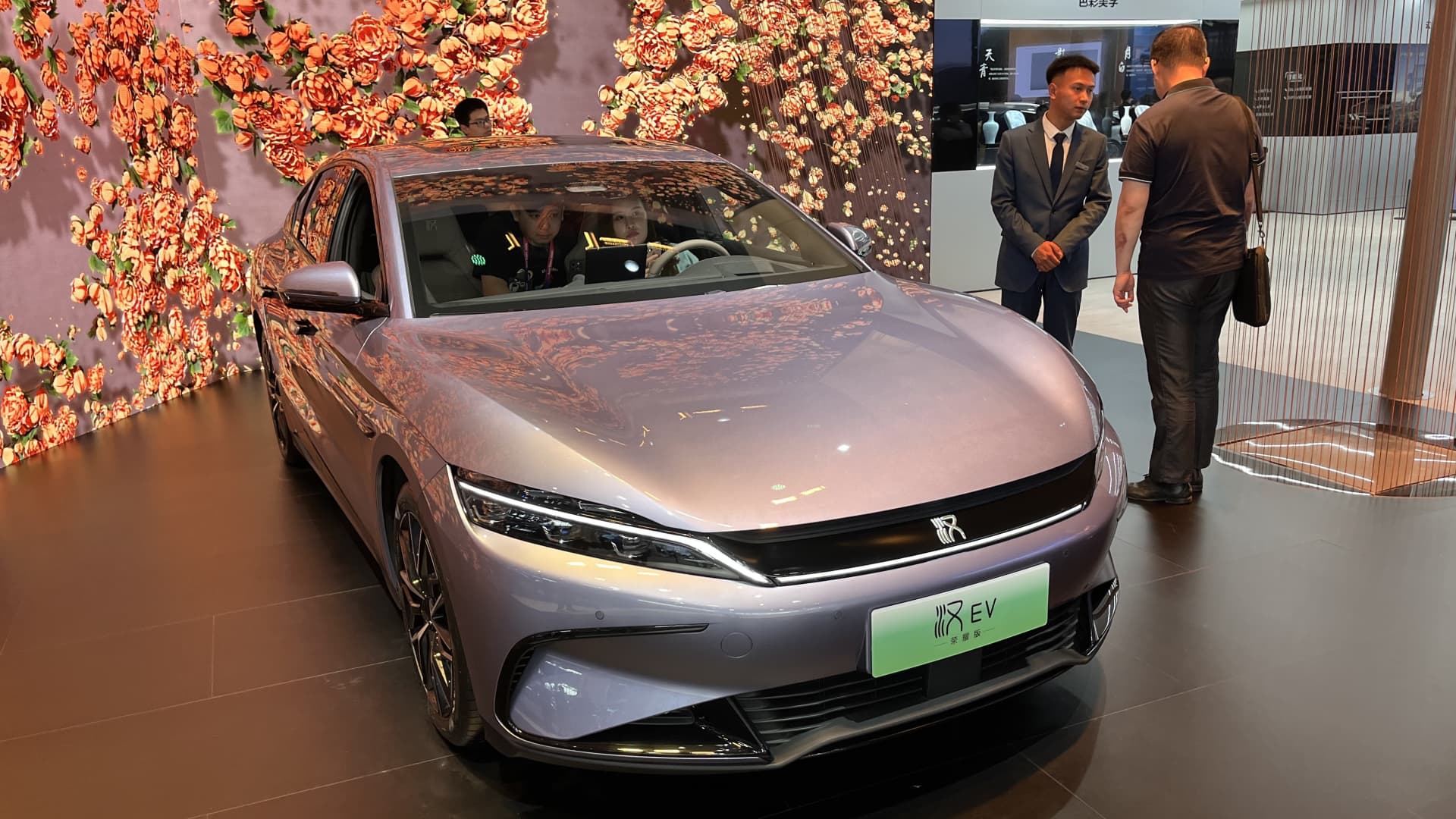
Winning in China’s electric car market is no longer just about having the cheapest price. Despite new U.S. tariffs , the Chinese electric car industry is already moving into a new phase of competition no longer centered on sticker prices alone, many in the industry say. That’s good news for profit margins. But it also puts pressure on companies to make sure they are spending on developing the features consumers want. And that could sometimes be as simple as installing a sunroof, benefiting glass makers in the process. More than 80% of Chinese consumers surveyed by JPMorgan last month said they prefer an electric vehicle with a panoramic sunroof — and the majority are willing to pay more than 600 yuan ($84.50) to get one. Untapped market When it comes to those expansive panels, the market is largely untapped. Only about 12% of cars worldwide, including traditional fuel-powered vehicles, have a panoramic sunroof, JPMorgan analysts said in a report last week, citing late 2023 figures from Fuyao Glass . Hong Kong-listed Fuyao, a major supplier of glass for cars, is one of JPMorgan’s top picks to take advantage of China’s growing electric car market. The report said panoramic sunroofs accounted for about 7% of Fuyao’s total revenue in 2023. JPMorgan and a survey partner polled more than 2,500 consumers in China in mid-April who recently bought or are planning to buy a new electric vehicle. “We think Chinese EV competition has moved from mainly focusing on ‘price’ to now increasingly ‘content,’ and surprisingly, our survey results indicate that customers are willing to pay for the content,” JPMorgan said. That matches survey results from consulting firm AlixPartners that found U.S. and European consumers are more price sensitive than Chinese consumers when it comes to buying an electric car. “We don’t interpret that to mean that Chinese consumers are not price sensitive,” said Stephen Dyer, co-leader of Greater China Business at consulting firm AlixPartners, and Asia leader for its automotive and industrials practice. “We interpret it to mean there are already literally hundreds of options for Chinese consumers that are priced reasonably. They’re priced well,” he said in late April, noting Chinese consumers put nearly twice as much importance on tech features than U.S. respondents. That interest was on full display at the Beijing auto show late last month, with nearly every electric car maker emphasizing driver-assist capabilities and in-car entertainment. But the underlying core technology for electric cars remains the battery. About 70% of JPMorgan survey respondents said they are willing to pay a premium for a desired battery brand, especially those offering supercharging . “This is a positive for CATL who is now 1-1.5 years ahead of peers in launching [a] superfast charging battery,” the analysts said. The Shenzhen-listed Chinese battery giant, Contemporary Amperex Technology , is one of JPMorgan’s top Chinese electric car supply chain plays. Hybrids popular To be sure, not every Chinese car buyer is ready to go purely electric yet. JPMorgan’s latest survey found a significant increase this year in respondents preferring a hybrid-powered vehicle to a battery-only powered car. Some 44% of those surveyed said they would rather buy a plug-in hybrid or car with a fuel tank for extending a battery’s driving range. That’s up from 27% in 2023 and 24% in 2022, JPMorgan said. In terms of car brand, BYD has ranked as the number one brand favored by consumers the past three years, the report said. The battery maker and electric car giant produces both hybrid and battery-only cars — and is one of JPMorgan’s top plays in the sector. BYD lost some brand recognition versus last year’s results, with new entrant Xiaomi a close second. Geely, Huawei’s Aito brand and Li Auto were among the brands that saw significant increases in customer recognition, the JPMorgan report said. Tesla saw its brand power decline slightly. However, the Tesla Model 3 was the most-desired battery-only car in the 200,000 yuan to 300,000 yuan price range, the survey found. The majority of JPMorgan survey respondents had budgeted at least 300,000 yuan for their car purchase, with the 300,000 yuan to 400,000 yuan range the most popular. Last week, Chinese electric car company Nio released a new car in a lower-priced range of just over 200,000 yuan. While its new Onvo L60 SUV is about $4,000 cheaper than Tesla’s Model Y, the car is slightly more expensive than Xiaomi’s new SU7 electric sedan. Nio CEO William Li told reporters Thursday that he expected that the EV price war in China was mostly over, with the bulk of the cuts having already been taken. — CNBC’s Michael Bloom contributed to this report.